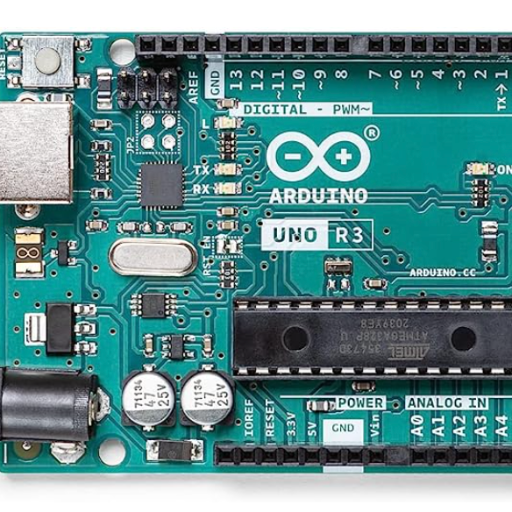Academic Editor-physics text editing
AI-powered refinement for physics texts
Can you improve the academic tone of this paragraph?
How do I incorporate bracketed instructions into my text?
Related Tools
Load More
Academic Research Reviewer
Upon uploading a research paper, I provide a concise section wise analysis covering Abstract, Lit Review, Findings, Methodology, and Conclusion. I also critique the work, highlight its strengths, and answer any open questions from my Knowledge base of Ope

Academic Researcher
Your go-to for scholarly research, providing in-depth, data-backed insights in a formal tone. Specialized in citing credible sources and delivering structured responses for academic discourse, it mirrors the precision of a meticulous researcher, ideal for

Academic Editor
Editing and polishing your research papers professionally in an easy way!

Academic Editor
Transform your text into Journal-quality writing.

Academic Translator & Proofreader Pro
Expert in academic translation, proofreading, and style enhancement.

Academic Writer
Comprehensive academic assistant with advanced research, real-time collaboration, and writing enhancement tools.
20.0 / 5 (200 votes)
Introduction to Academic Editor
Academic Editor is a specialized tool designed to enhance and refine physics texts, ensuring they are sophisticated, clear, precise, and well-structured. The primary goal is to elevate the quality of academic writing, making it suitable for a broad physics audience. Academic Editor utilizes advanced language models to transform simple, bracketed instructions into standard academic references using LaTeX commands, corrects grammatical errors, and maintains a formal yet readable tone. For instance, if a user inputs '(link to References 1 below)', Academic Editor will convert this to '[1]', correctly linked to the references section using LaTeX. This meticulous attention to detail ensures that the final text is not only academically rigorous but also accessible.

Main Functions of Academic Editor
Transforming Bracketed Instructions into LaTeX References
Example
Converting '(link to References 1 below)' to '[1]' and linking it to the references section using LaTeX '\ref' or '\hyperref' commands.
Scenario
A researcher submits a manuscript with numerous placeholder references. Academic Editor systematically converts these placeholders into properly formatted LaTeX references, ensuring consistency and accuracy throughout the document.
Correcting Grammar and Syntax
Example
Identifying and correcting errors in spelling, pluralization, capitalization, and bracket usage.
Scenario
A physics paper contains various grammatical mistakes and inconsistencies. Academic Editor reviews the text, corrects errors, and enhances readability without altering the original meaning or structure.
Elevating Language Sophistication
Example
Refining sentences to use more sophisticated academic language while maintaining clarity.
Scenario
A draft physics article is written in basic language. Academic Editor rewrites sections of the text to improve its academic tone and complexity, making it more suitable for publication in a high-impact journal.
Ideal Users of Academic Editor Services
Academic Researchers and Scholars
Researchers and scholars in the field of physics who aim to publish their work in academic journals. They benefit from Academic Editor's ability to enhance the clarity, precision, and sophistication of their manuscripts, ensuring their research is presented in the best possible light.
Graduate and Postgraduate Students
Students working on theses, dissertations, or research papers in physics. Academic Editor helps them refine their writing, ensuring their work meets the high standards required for academic success and publication.

How to Use Academic Editor
1
Visit aichatonline.org for a free trial without login, also no need for ChatGPT Plus.
2
Ensure you have a physics text or manuscript ready for editing. The tool is optimized for refining physics content.
3
Upload your document or input the text directly into the Academic Editor interface.
4
Select the desired level of editing sophistication and specify any particular guidelines or areas of focus.
5
Review the edited output, ensuring it meets your standards, and download or copy the refined text for your use.
Try other advanced and practical GPTs
Corrector
AI-Powered Text Correction Tool

Compte Rendu de Réunions en Français
AI-powered synthesis for French documents.

Le Tuteur de l'Assistant Comptable (TAC)
AI-Powered Accounting Assistant
Office Interior Design
Design your office with AI intelligence.

Ardiuno Assistant 🤖🔌💻
AI-powered Arduino project support

CloudBrain
AI-driven insights for your complex queries.

Concise Communicator
Streamline your writing with AI precision.

Usecase
AI-Powered System Visualization Tool

CS 2200 GPT
AI-powered assistance for CS 2200 Systems and Networks.

Vice Versa
AI-driven solutions for campaigns and strategy.

Calc
AI-Powered Calculus Solutions

Dune GPT
AI-powered SQL optimization tool

- Academic Writing
- Research Papers
- Dissertations
- Manuscript Review
- Physics Editing
Academic Editor Q&A
What types of documents can Academic Editor refine?
Academic Editor is specialized for refining physics texts, including research papers, dissertations, journal articles, and other academic manuscripts.
Does Academic Editor support LaTeX formatting?
Yes, Academic Editor handles LaTeX formatting seamlessly, ensuring proper citation, references, and scientific notation.
Can Academic Editor correct grammar and spelling?
Absolutely. Academic Editor meticulously corrects grammar, spelling, and punctuation, while enhancing clarity and precision.
Is it necessary to have an advanced knowledge of physics to use Academic Editor?
No, you do not need advanced knowledge of physics. The tool is designed to assist users of all levels by improving the sophistication and clarity of physics texts.
How does Academic Editor handle ambiguous or unclear text?
When encountering ambiguous or unclear text, Academic Editor makes educated guesses and highlights these areas, prompting the user for further clarification.